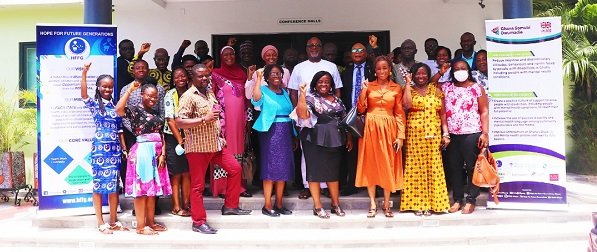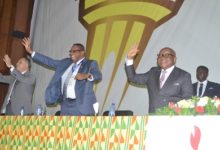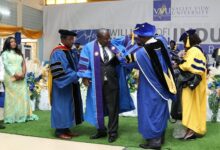
Journalists have been urged to use positive non-discriminatory language in their reportage on stories involving Persons living with Disabilities (PWDs).
According to the Project Director of the Hope For Future Generation (HFFG), a non-governmental organisation, Ms Nancy Ansah, the mass media had a greater influence on society.
She, therefore, urged them to use positive language towards PWDs to help change the negative perception that they were subjects of public sympathy.
She said it was evidenced that persons who were challenged in one way or the other had made it in life, in both academia and secular world, adding that they needed the enabling environment to achieve their potentials and contribute to national development.
Ms Ansah, made the call at a stakeholder’s engagement in Accra last Friday on the need to prioritise issues of disability and mental health in the country.
The meeting, attended by about 10 senior journalists, producers and talk show hosts, was against the backdrop of stigma and discrimination against PWDs because of the language used by a section of the public in describing people with disabilities and mental health conditions.
It was organised by HFFG and PsyKForum with support from UK Aid under the Social Behaviour Change Communication and Stigma and Reduction for Mental Health and Disability Inclusion Project.
The Programmes Manager of the Ghana Blind Union (GBU), Dr Elizabeth Zotokorvie, in her presentation, took participants on topics such as Understanding disability situation in Ghana; Needs and rights of people with disabilities, including mental health conditions.
She said society would continue to look down on PWDs and persons with mental conditions because of how the media described them with the negative perception, that these were people who society should have pity on and give them handouts.
“Let us focus on the positives of the disability community,” she said, citing the example PWDs who had made it in live in academic circles where some of them had attained Masters Degrees and others to a doctorate level.
She regretted that today, PWDs could not have access to some government buildings due to the none-existence of disability-friendly structures which was a complete violation of their fundamental rights to have unhindered access to public offices.
A former Ashanti Regional Director of the Ghana Broadcasting Corporation (GBC), Sam Kwatia, educated the participants on the need for a paradigm shift in reporting disability issues, particularly where persons with mental conditions such as Bipolar, depression or dementia were simply referred to as ‘Mad people.’
He mentioned vision and hearing impaired persons whom he said were often called names such as ‘deaf and dumb and blind’, stressing that this negative language was fuelling the stigma and discrimination against such persons.
Mr Kwatia, therefore, implored participants to set the agenda of positive language and the promotion of the success stories of persons living with disability, rather than dwelling on their challenges to make headlines.
BY NORMAN COOPER







